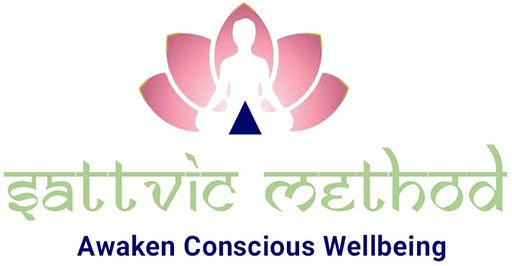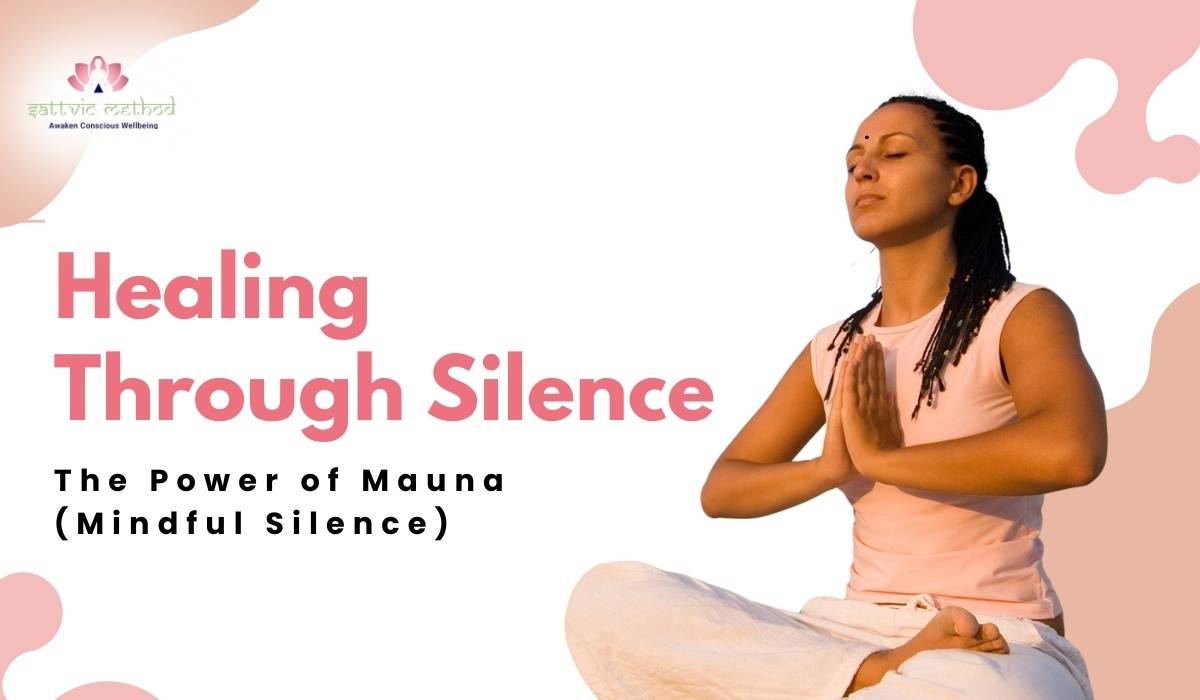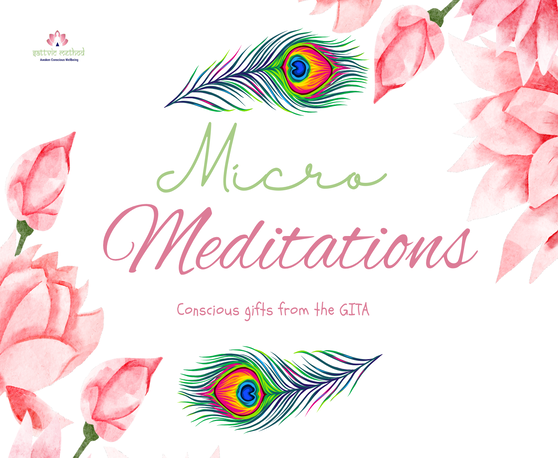Healing Through Silence: The Power of Mauna (Mindful Silence)
In a world filled with constant noise, notifications, conversations, music, and endless chatter, silence has become rare and almost uncomfortable. Yet, silence is not emptiness; it is a space of deep healing and inner awakening. In ancient Indian philosophy, this sacred silence is known as Mauna, a mindful and conscious practice of quietude that allows the mind to rest and the soul to speak.
What Is Mauna (Mindful Silence)?
The word Mauna comes from the Sanskrit root “muni,” meaning sage, one who is silent. But Mauna doesn’t simply mean refraining from speech; it’s about cultivating inner stillness. It is the silence that arises when the mind ceases to react, when thoughts settle like dust after a storm, and when we become witnesses to our inner world.
Practicing Mauna helps us reconnect with our true essence. In silence, we can hear the subtle voice of our intuition, understand our emotions better, and experience the peace that lies beyond words.
The Science of Silence and Healing
Modern science now supports what sages have known for centuries, silence has profound healing effects. Studies have shown that spending time in silence can:
-
- Reduce stress hormones like cortisol.
-
- Enhance brain cell growth in the hippocampus, the region responsible for learning and memory.
-
- Lower blood pressure and improve emotional regulation.
Silence activates the parasympathetic nervous system, which promotes relaxation, reduces anxiety, and supports mental clarity. In simple terms, silence helps your body and mind enter a natural state of balance and healing.
When we immerse ourselves in silence, the brain resets from overstimulation. This reset helps us think more clearly, process emotions, and rejuvenate the nervous system, leading to inner peace and emotional resilience.
The Spiritual Significance of Mauna
In the Sattvic tradition, silence is considered one of the purest forms of spiritual practice. It aligns your mind, body, and energy with higher consciousness. Many spiritual masters have practiced Mauna to deepen their meditation and self-awareness.
Silence acts like a mirror, reflecting your true nature back to you. When you stop speaking outwardly, you begin to listen inwardly. You discover that most of your suffering arises not from external events but from your thoughts about them.
Through Mauna, you learn to observe without judgment. You understand that peace is not something you must search for; it already exists within you, hidden beneath layers of noise and distraction.
Practical Ways to Practice Mauna
You don’t have to isolate yourself or take a vow of lifelong silence to experience its benefits. Even small doses of mindful silence can create transformation. Here are a few simple ways to begin:
1. Begin Your Day in Silence
Start your morning without speaking for the first 15–30 minutes. Instead of checking your phone or turning on the TV, sit quietly with your thoughts, breathe deeply, and allow your mind to settle.
2. Create a Silent Space
Designate a corner in your home as your “silent sanctuary.” It can be your meditation corner, a spot near a window, or a garden seat. Whenever you feel overwhelmed, retreat to this space to reconnect with yourself.
3. Observe Thought Silence
Even if your surroundings are noisy, practice inner silence by observing your thoughts instead of engaging with them. This helps train your mind to remain calm in the midst of chaos.
4. Digital Silence
Spend one day a week away from gadgets and screens. Disconnect from digital chatter and reconnect with your inner rhythm. This “tech Mauna” can work wonders for your emotional health.
5. Practice Silent Eating
Try having one meal in complete silence. Focus on the aroma, texture, and taste of your food. This mindful act nourishes not just your body but also your soul.
Emotional and Energetic Benefits of Mauna
The practice of silence is deeply restorative for your energy field. When you stop expressing outwardly, your prana (life force) gets conserved and redirected inward, enhancing clarity and vitality.
On an emotional level, silence acts as a balm. It helps release suppressed feelings, reduces mental agitation, and cultivates patience and compassion. You begin to see others with a deeper understanding and empathy because your mind no longer rushes to react.
Spiritually, Mauna is a doorway to self-realization. It allows you to experience the stillness that lies beyond the mind, a direct encounter with your own divinity.
Integrating Mauna Into Everyday Life
You can practice Mauna in small, meaningful ways each day:
-
- Sit in silence for 5 minutes after every meal.
-
- Spend 10 minutes in quiet reflection before bed.
-
- Replace background noise with gentle nature sounds or mantra vibrations.
-
- Use silence as a response, not every situation needs words.
Gradually, you’ll notice that silence becomes your natural state, even amidst noise. You’ll feel grounded, intuitive, and more connected to your higher self.
A Gentle Reflection
Silence doesn’t mean the absence of sound, it is the presence of awareness. In silence, we discover that peace is not something to achieve, but something we return to. The practice of Mauna reminds us that healing doesn’t always happen through doing, but through being.
As you invite silence into your life, you’ll begin to heal from within, restoring balance, clarity, and connection with the essence of who you truly are.
Reconnect with Your Inner Stillness
Embrace the power of mindful silence and begin your journey toward healing and self-discovery. Visit The Sattvic Method Company for guided meditations, spiritual workshops, and resources that help you live with clarity, peace, and purpose.










